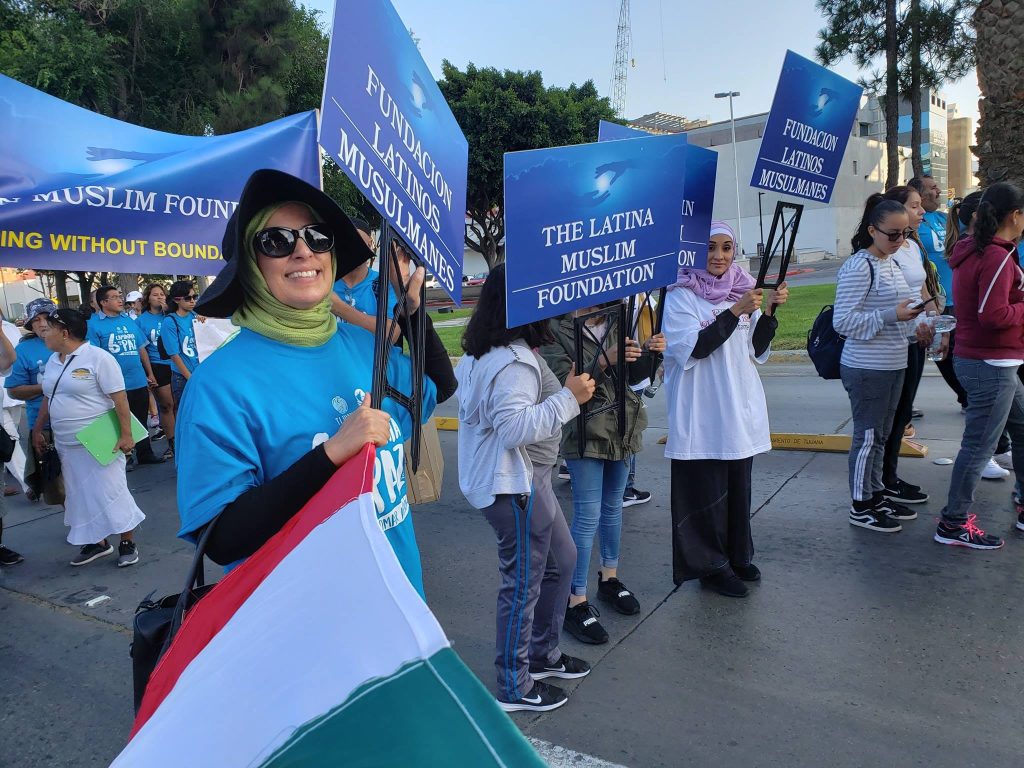Debunking 10 Myths About Latino Muslims
In today’s globalized world, it is essential to challenge misconceptions and stereotypes that perpetuate misunderstandings about different cultures and religions. One such group that faces numerous misunderstandings is Latino Muslims. The intersection of Latino and Islamic identities has given rise to several myths that need to be debunked to foster understanding and inclusivity. In this article, we will examine ten common myths about Latino Muslims and shed light on the reality.

Myth 1: Latino Muslims are a recent phenomenon.
Contrary to popular belief, the presence of Muslims in Latin America dates back centuries. Historical evidence shows that Muslim explorers and traders arrived in the region long before the European colonial era. In fact, during the transatlantic slave trade, many Africans who were brought to Latin America as slaves were practicing Muslims. Today, the number of Latino Muslims is growing, thanks in part to increased awareness and access to information about Islam.
Myth 2: Latino Muslims are only immigrants.
While some Latino Muslims are indeed immigrants, many others are born and raised in Latin American countries. Islam is not limited by geographical borders, and its followers can be found across diverse communities, including those of Latino descent.
Myth 3: Latino Muslims are a monolithic group.
Like any religious or cultural community, Latino Muslims are diverse and multifaceted. They come from various countries, cultures, and ethnic backgrounds within Latin America. Each individual brings their unique experiences, perspectives, and interpretations of Islam, contributing to the richness of the global Muslim community.
Myth 4: Latino Muslims face a clash of identities.
A common misconception is that being both Latino and Muslim creates a clash of identities. However, many Latino Muslims find harmony in their dual heritage. They often view their faith as complementing their cultural background, enriching their lives, and promoting a sense of interconnectedness with people from different walks of life.
Myth 5: Latino Muslims abandon their Latino heritage upon conversion.
Becoming a Muslim does not necessitate forsaking one’s cultural heritage. Instead, Latino Muslims often incorporate Islamic practices into their existing cultural traditions, resulting in a beautiful fusion of faith and heritage. Embracing Islam can strengthen cultural ties and lead to greater appreciation for diversity.
Myth 6: Latino Muslims are isolated within their communities.
On the contrary, Latino Muslims actively engage in their local communities, forging connections and contributing positively to society. They participate in various interfaith dialogues, community service projects, and cultural events, fostering understanding and promoting unity among diverse groups.
Myth 7: Latino Muslims are not well-integrated into the broader Muslim community.
Latino Muslims are an integral part of the global Muslim community. While they may face unique challenges due to their dual identity, they are warmly welcomed by the wider Muslim ummah. Many mosques and Islamic organizations provide support and resources to cater to the specific needs of Latino Muslims, promoting inclusivity and a sense of belonging.
Myth 8: Latino Muslims are oppressed or forced into their faith.
Some erroneously believe that Latino Muslims are coerced or forced into adopting Islam. In reality, religious conversion is a deeply personal and voluntary decision. Like anyone else, Latino Muslims choose their faith based on their spiritual journey and convictions.
Myth 9: Latino Muslims are not knowledgeable about Islam.
Being Latino does not determine one’s level of knowledge or commitment to Islam. Latino Muslims, like followers of any faith, pursue education and spiritual growth. Many actively study Islamic texts and engage in scholarly discussions to deepen their understanding of the religion.
Myth 10: Latino Muslims are a threat to society.
Stereotyping any religious or cultural group as inherently dangerous is unfair and unfounded. Latino Muslims, like the majority of individuals, strive for peace, justice, and coexistence. They reject extremism and work towards building bridges of understanding between different communities.
In conclusion, debunking myths about Latino Muslims is crucial to dispelling stereotypes and promoting inclusivity. Latino Muslims have a rich history, diverse backgrounds, and an essential role within both the Latino and Muslim communities. By understanding and embracing their unique experiences, we can strengthen the bonds of humanity and create a more harmonious and accepting world for all. It is essential to remember that diversity is a source of strength, and acknowledging and celebrating it can enrich our collective human experience.
